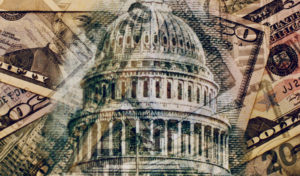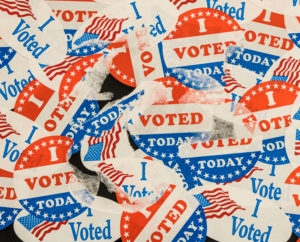
Recent court rulings, bureaucratic failings, and political conflict have loosened campaign finance rules.
Over the last five years, the rules regulating money in federal elections have become increasingly loosened, not as the result of a single decision made by courts or campaign finance regulators, but due to a combination of court rulings, bureaucratic shortcomings, political gridlock, and aggressive election lawyers. The result is that it is becoming child’s play to spend unlimited and undisclosed sums to influence our federal elections. No one should have illusions things will get better quickly, even if Judge Merrick Garland is confirmed to replace Justice Antonin Scalia on the United States Supreme Court.
The loosening of campaign finance regulation began with the Supreme Court’s controversial 2010 decision in Citizens United v. Federal Election Commission, holding that corporations have a First Amendment right to spend money independent of candidates supporting or opposing them for office.
The Court also held―although fewer people know it―that the government’s interests in providing valuable information to voters and deterring corruption justify laws requiring political actors to disclose their campaign contributions and spending.
Citizens United’s holding did not lead directly to broad deregulation. Few corporations want to spend money directly in their own name on election ads. But Citizens United led to additional lawsuits and requests for advisory opinions at the Federal Election Commission (FEC). The result was the emergence of “Super PACs,” groups which can take unlimited contributions from individuals, corporations, and labor unions to fund election campaigns.
Now, rather than specific wealthy individuals or entities having to have their names on every ad as a sponsor, they can give the money to an anodyne-sounding group (like Stephen Colbert’s “Americans for a Better Tomorrow, Tomorrow” Super PAC), allowing for unlimited funding with fewer fingerprints.
The conceit of Super PACs is that they are independent from campaigns in coordinating their message, and this is essential to their legality. Citizens United held that independent spending cannot corrupt or create the appearance of corruption, and later rulings allowing Super PACs were based on the logic that if independent spending cannot corrupt, then contributions to fund such spending cannot corrupt either.
But campaigns have increasingly pushed the boundaries of what counts as “independence.” Both Jeb Bush and John Kasich worked on strategy and communications with their allied Super PACs, claiming they could do so before they officially declared themselves candidates.
When Carly Fiorina was a candidate, she would publicly post her schedule, and her shoestring campaign could depend upon her allied Super PAC showing up at the same events, getting out the Fiorina message. No one has stopped these candidates from engaging in these actions.
Then there is the FEC, which has been locked in a 3-3 partisan struggle between Democratic commissioners who are fighting to enforce various election rules, and Republican commissioners who have fought hard against regulation, stating that much of it violates the First Amendment.
The result has been agency stalemate which has created broader space for campaign lawyers to push the envelope without fear of retribution from the FEC. Further, the 3-3 splits now provide a de facto safe harbor for campaigns, as they can later defend their conduct as arguably not illegal, given that even the FEC commissioners cannot agree.
Things are just as bad on the disclosure front. Despite the Supreme Court’s endorsement of disclosure as constitutional in cases such as Citizens United, disclosure laws have become increasingly porous. One loophole is the use of “social welfare organizations” under section 501(c)(4) of the Internal Revenue Code to avoid disclosure. These groups operate like Super PACs except they do not register as committees with the FEC, and they can shield their donors thanks to lax enforcement of their status by both the FEC and the Internal Revenue Service (IRS).
The IRS had a chance to enforce aggressively the social welfare status of these groups through rulemaking or otherwise, but it wound up instead just ham-handedly targeting “Tea Party” groups for special scrutiny. The result has been a series of investigations of the IRS which has made the agency too reluctant to be an effective regulatory body to police real abuses.
Meanwhile, those giving to Super PACs have started shielding their identities by creating Limited Liability Companies (LLCs) and other entities, blatantly flaunting rules that a reasonable FEC should enforce.
Congress could step in tomorrow and fix the disclosure and coordination messes, but the issue now divides Congress along party lines. We have come a long way from earlier bipartisan support for reasonable campaign finance regulation. Now the issue has become part of Washington’s larger gridlock.
Given the deregulatory path that campaign finance is on, even a new, more liberal Supreme Court majority with a Justice Garland would do little to fix the problems. A reversal of Citizens United, for instance, would leave other rulings in place, such as the ones supporting the creation of Super PACs, as well as holes in coordination and disclosure rules.
The Court may eventually make space for more regulation, but it will take political will (and likely new federal law) to reimpose balance in the system. I am not holding my breath.
This essay is part of The Regulatory Review’s sixteen-part series, RegBlog@5.




